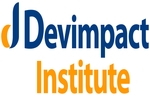|
|
Training on Participatory Monitoring and Evaluation
USD 950 |
Venue: Nairobi, Kenya
‘Participation’ has become a critical concept in development. Donors, governments, and NGOs are insisting upon participatory approaches in assessing needs and in implementing programmes. With increased emphasis on the importance of participation in development, there is a growing recognition that monitoring, and evaluation of development and other community-based initiatives should be participatory.
This course will broaden participants’ understanding of PM&E as a support to program/project management at different levels and as a tool for strengthening participation, enhancing local capacity, and increasing local people’s confidence and control over development decisions and processes.
Target Participants
This course is designed for researchers, project staff, development practitioners, managers and decision makers who are responsible for project, program, or organization-level M&E and who want to implement participatory approaches to their projects.
What you will learn
By the end of this course the participants will be able to:
- Understand PM&E Process
- Develop PM&E Results Levels
- Define Indicators for Participatory Monitoring and Evaluation
- Develop Logical Framework Approach in PM&E
- Carryout participatory M&E Planning
- Understand data collection for PM&E
- Develop Tools and Techniques for rural appraisal in PME.
- Carryout data Analysis in PM&E
- Implement Participatory Impact Assessment
Course Duration
Online 7 Days
Classroom-based 5 Days
Course Outline
Introduction to Participatory Monitoring & Evaluation (PME)
- Definition of Participatory Monitoring & Evaluation
- Purpose and benefits of Participatory Monitoring & Evaluation
- Principles of Participatory Monitoring & Evaluation
- The relevance of Participatory Monitoring and Evaluation
- Challenges in using participatory approaches.
PM&E Process
- Planning the PM&E Process and Determining Objectives and Indicators
- Data Collection methods and tools
- Data analyzing
Developing PM&E Results Levels
- M&E results chain
- Components of results chain
- Linking the result levels
Indicators for Participatory Monitoring and Evaluation
- What are indicators?
- Types of indicators
- Characteristics of good indicators
- Participatory process of indicator definition
Logical Framework Approach in PM&E
- LFA – Analysis and Planning phase
- Design of logframe
- Risk rating in logframe
- Horizontal and vertical logic in logframe
- Using logframe to create schedules: Activity and Budget schedules.
Participatory M&E Planning
- Components of PM&E plan
- Developing PM&E plans
- Implementing PM&E plans
Participatory Project design
- Generating objectives for project planning
- Developing an action plan for implementation
- Group dynamics of participatory decision making
Data collection for PM&E
- Participatory Information gathering Tools and Methods
- Quantitative and qualitative data
- Triangulating data collection sources and methods
- Preparing data collection methods/tools
Tools and Techniques for PME
- Participatory Rural Appraisal (PRA) tools
- Beneficiary Assessment
- Visual self-evaluation tools
- Testimonials
- Photographing the evidence
- Community records and indicators
Participatory Action Research
- Tools for PAR
- Importance of PAR
- Steps in carrying out PAR.
Data Analysis in PM&E
- Introduction to data analysis in PM&E
- Using SPSS/Stata in quantitative data management and analysis for PM&E
- Descriptive and inferential analysis
- Participatory dissemination of the findings
Participatory Evaluation
- Evaluation questions
- Evaluation design
- Participatory data collection
- Evaluation data analysis
- Evaluation findings dissemination and action planning
Participatory Impact Assessment
- What is participatory impact assessment?
- Process of PIA
- Community defined indicators in PIA
- Participatory tools and methods in PIA
- Project attribution
Reporting in PM&E
- Reporting on progress toward outcomes to Stakeholders and Participatory dissemination.
- Communication activities to partners and stakeholders
- Lessons learned.
- Key activities and results that need planning.
- Using the information for the action-learning process and reporting
Training Approach
This course is delivered by our seasoned trainers who have vast experience as expert professionals in the respective fields of practice. The course is taught through a mix of practical activities, theory, group works and case studies.
Training manuals and additional reference materials are provided to the participants.
Certification
Upon successful completion of this course, participants will be issued with a certificate.
Tailor-Made Course
We can also do this as a tailor-made course to meet organization-wide training needs. A training needs assessment will be done on the training participants to collect data on the existing skills, knowledge gaps, training expectations and tailor-made needs.
| Nairobi, Kenya | Dec 09 - 13 Dec, 2024 |
Registration: 08:30:am - 04:00:am
| USD 950.00 + 47.50 (VAT) | (Classroom-based) |
| USD 600.00 + 30.00 (VAT) | (Online) |
Devimpact Institute +254714349537
Related Courses
 Training on Public Financial Management and Administration
Training on Public Financial Management and Administration
5 days, 06 - 10 Jan, 2025
Devimpact Institute



